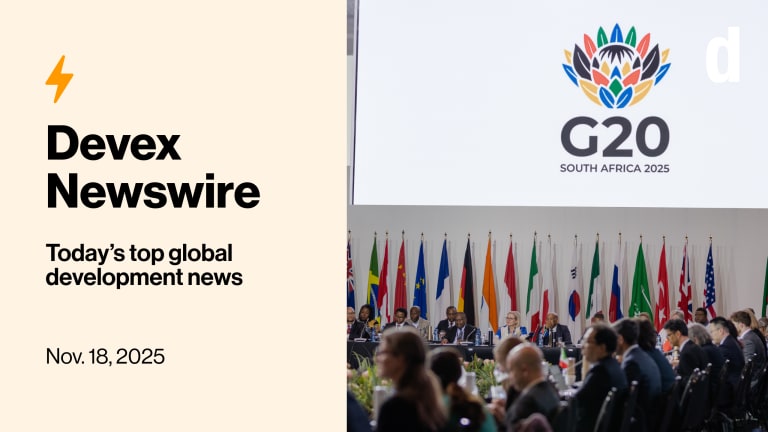
The World Bank and three governments are investing in a South African vaccine manufacturer in an effort to boost production of COVID-19 vaccines on the African continent.
Bank President David Malpass said there is “surging” demand for vaccines from lower-income nations. “We want countries to know the financing is available,” he said.
Sign up for Devex CheckUp
The must-read weekly newsletter for exclusive global health news and insider insights.
The €600 million funding package for Aspen Pharmacare, which is Africa’s largest pharmaceutical company and is based in Durban, comes from the International Finance Corp. — the World Bank’s private sector arm — in cooperation with the U.S. International Development Finance Corp.; DEG, the German development finance institution; and Proparco, a subsidiary of France’s Agence Française de Développement.
The fund includes money for the entire vaccine supply chain. Aspen aims to produce more than 500 million doses of the Johnson & Johnson single-dose vaccine by the end of 2022.
The World Bank also said Wednesday that it will increase its funding aimed at supporting the global vaccine rollout from $12 billion to $20 billion.
Why it matters: Lower-income countries account for a fraction of the roughly 3 billion COVID-19 vaccines doses administered globally. While the U.S. has delivered some 98 doses per 100 people, Nigeria — Africa’s most populous country — has delivered just 1.7 per 100.
So far, 51 countries have received World Bank assistance on vaccines, worth upwards of $4 billion. There is growing recognition that Africa needs more domestic pharma production, with most sub-Saharan nations importing over 70% of the drugs they consume.
What’s next: Malpass also called on countries in the G-20 group of nations to share more vaccine doses and commit to the pledge of vaccinating 40% of the global population by the end of this year and 60% in 2022. Finance ministers from the group of major economies are set to meet in July.









